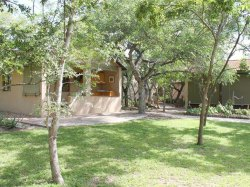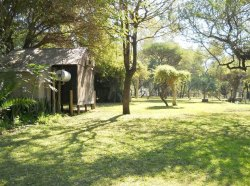The demand for sugar cane farms is so high that virtually no such farms are currently available for purchase in the verdant Nkomazi Municipal District in the Mpumalanga Lowveld.

This is according to Gerhard van Niekerk, Pam Golding Properties area principal based in Nkomazi, who says a huge demand for sugar cane farms and land suitable for sugar cane farming has resulted in a major shortage of stock.
Some 30% of South Africa’s total sugar output is produced by the three Remgro-owned TSB mills, of which one is situated near Malelane and another near Komatipoort - both within Nkomazi. In 2004, sugar cane land in these areas sold for R40 000 to R55 000 per hectare. Now, 10 years later, it is selling for R100 000 to R200 000 per hectare, reflecting a healthy increment of 13% per annum compounded.
“The Nkomazi area is attracting existing cane farmers in KwaZulu-Natal, while local farmers realising the need to apply economies of scale to maintain profit levels, are also looking for opportunities to expand.” However, these farms are hard to come by, with realistically priced sugar cane farms that do come onto the market selling in a short period of time, he says.
A small sugar cane farm comprising 29ha was recently sold near Malelane, which fetched R193 000 per hectare, and a 230ha mixed sugar cane or sub-tropical fruit and vegetable farm is currently on the market for R28.5 million.

Covering the area between the Kruger National Park, Mozambique and Swaziland, the Nkomazi District is 4 787 square kilometres in extent, and also includes the towns of Hectorspruit, Kamhlushwa and Kamaqhekeza.
Known as the winter food basket of South Africa, Nkomazi enjoys frost-free winters with average minimum temperatures around eight degrees, which allows for vegetable and sub-tropical fruit production. Summers are hot and humid with the average maximum temperature around 33 degrees.
The area’s main economic sectors are agriculture and tourism, with sugar cane, bananas, citrus, vegetables and sub-tropical fruit such as litchis, mangoes and papaya grown under irrigation. Land without access to irrigation water is developed into cattle and game farms.
Van Niekerk says agriculture in Nkomazi is not possible without sufficient irrigation water, and the stabilisation of the three main rivers had a significant, positive impact on production. The Crocodile River is stabilised by the Kwena Dam, the Komati River by the Driekoppies Dam and the Lomati River by the Maguga Dam, with the three dams collectively providing 741 800 000 cubic metres of water.
In the Lowveld’s Umjindi District, which was formerly a major tobacco producing area that now focuses on agriculture, forestry, mining and tourism, over the past decade values of macadamia farms have escalated in manner similar to Nkomzi’s sugar cane farms.
“At present there are no macadamia farms available, despite a long list of potential buyers for land with established orchards, as well as for land with a suitable water allocation,” he says.
Bordered by Mbombela District, Nelspruit, to the north and west, Nkomazi and Swaziland to the east and Albert Luthuli District, Carolina, to the south, the Umjindi Municipal District covers some 1 745 square kilometres. In the capital town of Barberton, buyers are also looking to acquire small farms of 7 to 15 hectares - particularly those with established macadamia trees.
Mbombela city, within the Mbombela Municipal District, is also a sought-after macadamia territory, and the market is booming. “There is currently a huge demand for macadamia farms, which are highly lucrative and tightly held.
Established orchards yielding 3.5 to 4 tons per hectare can fetch R230 000 to R250 000 per hectare should they come onto the market, whereas these were selling for R90 000 to R110 000 per hectares 10 years ago. Several major macadamia farmers are currently seeking to expand their existing farms in Mpumalanga by acquiring land with a suitable water supply.
“In addition to these farms, residential property on the Crocodile River, which forms the southern boundary of the Kruger National Park, is highly sought after as it is common to see a variety of game from your veranda.” As a result, homes in Komatipoort, Malelane and Marloth Park holiday town, all situated on the banks of the river, are in high demand, he says.
There is also a huge demand for residential property to rent in Komatipoort, as many contractors working in Mozambique wish to establish their families in the town,” says van Niekerk.







